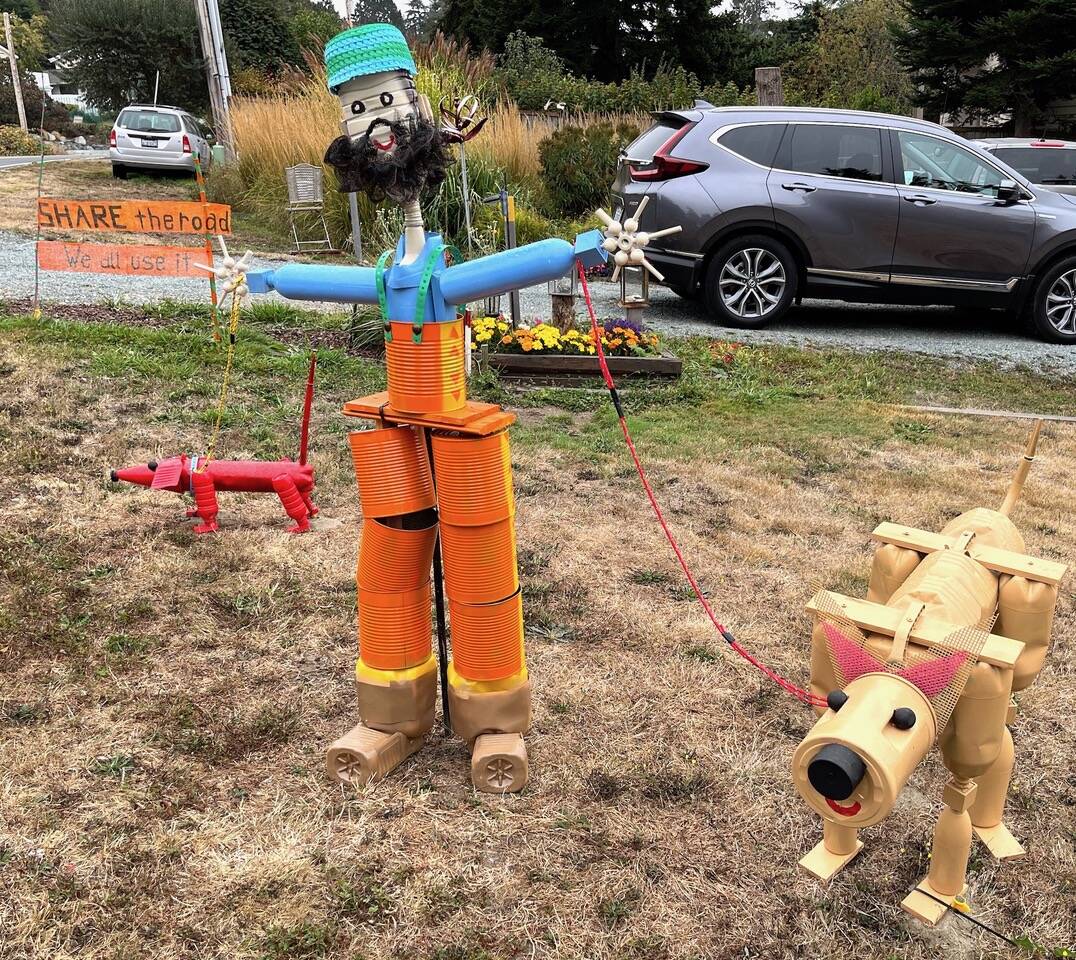Nancy McCloskey moved back to our Rock in 2020, “two weeks before COVID,” as she likes to say. She built a small home on a lot in Admiral’s Cove with a gorgeous view of the wetlands by Crockett Lake. She’d been away for more than 40 years and knew the island had changed. More people, more traffic, lots more tourists, fewer trees, endangered oceans, less wildlife. “But it doesn’t matter, I still really love it.”
She first came to Whidbey in 1976 as a young wife and mother of two children. She and her husband, who worked in the fishing business, rented a small cabin in Greenbank. “It was so rural then. Fishing cabins all along the waterfront and farming everywhere else,” she recalls. “When people asked for my address back then, I’d tell them it’s one quarter mile east of Highway 525 down Resort Road, fifth driveway to the left. We had no house number.”
That was a far cry from growing up in Chicago, where she studied graphic arts and hoped to pursue an artistic career. After failing to find a graphic arts job in Seattle, she accepted an offer to be the graphic artist for The Little Nickel, a free weekly paper on Whidbey filled with classified and local business ads. After a few years, she switched to become the local dogcatcher and then she decided to be a housewife while her son and daughter were still very young.
Then she and her kids moved to Spokane, where she worked in health care for the Veterans Administration for 30 years before retiring about four years ago. “I just knew I would come back to Whidbey when I retired.”
And now, ensconced in her cozy new home with her two-year-old Scottie dog named Mr. Tuggins (because he likes to tug rugs), Nancy has also resumed her career as a graphic artist — but in a very unusual way. She makes “statues” out of plastic cross-stitch frames and a variety of recycled household goods from colanders to coffee cans. “I really didn’t want to spend much money except for some spray paint.” She’s put up four so far at various sites along the roads on Central Whidbey.
The statues look like comic book characters. Her first one was a man leading an alligator on a leash. All of them have signs beside them that read: “Share the road. We all use them.”
So how did she come to lend her graphic arts talent to these rather strange creations?
“Like a lot of people on Whidbey, I take my dog for walks along the road,” she said. “And sometimes people come whizzing right by us at a pretty fast speed. I soon realized that with all the hills on the island drivers really do build up some speed to climb the hills. They sometimes forget the speed limit and that they share the road with people on foot.”
She and Mr. Tuggins have never been hit but they’ve come close. And when she talks to others who walk on the roads, she hears about their close calls all the time. The walkers have a right to be there but too often drivers don’t think about them, she said. “We only have sidewalks in the towns but nowhere else. Those of us who walk outside the towns have to share the road with the vehicles and vice versa.”
And in summer, the grass beside the roads often grows so tall that those areas become un-walkable, she said. “Some drivers don’t realize that my dog is on a six-foot leash, which means our circle of space is bigger and my dog really doesn’t know not to step in front of your car if you’re coming at us really fast.”
She quickly discovered that if she confronted drivers and asked them to slow down they would often respond aggressively and wave her off by saying, “Don’t tell me to slow down!”
So she decided the best way to deal with it was with humor and an appeal to their “child side.” If you make it humorous and approach them in a friendly manner, they might just “put it in their brain,” she said.
Nancy said it took a lot of courage for her to knock on a few doors and ask to put up her comic statues on private property. But she’s found a home for the four she’s made so far and she plans to rotate them to new roadside spots every so often. And she’s willing to make more if there are people who want them. You can reach her by email at nancy_mccloskey@hotmail.com.
Harry Anderson is a retired journalist who worked for the Los Angeles Times and now lives on Central Whidbey.


